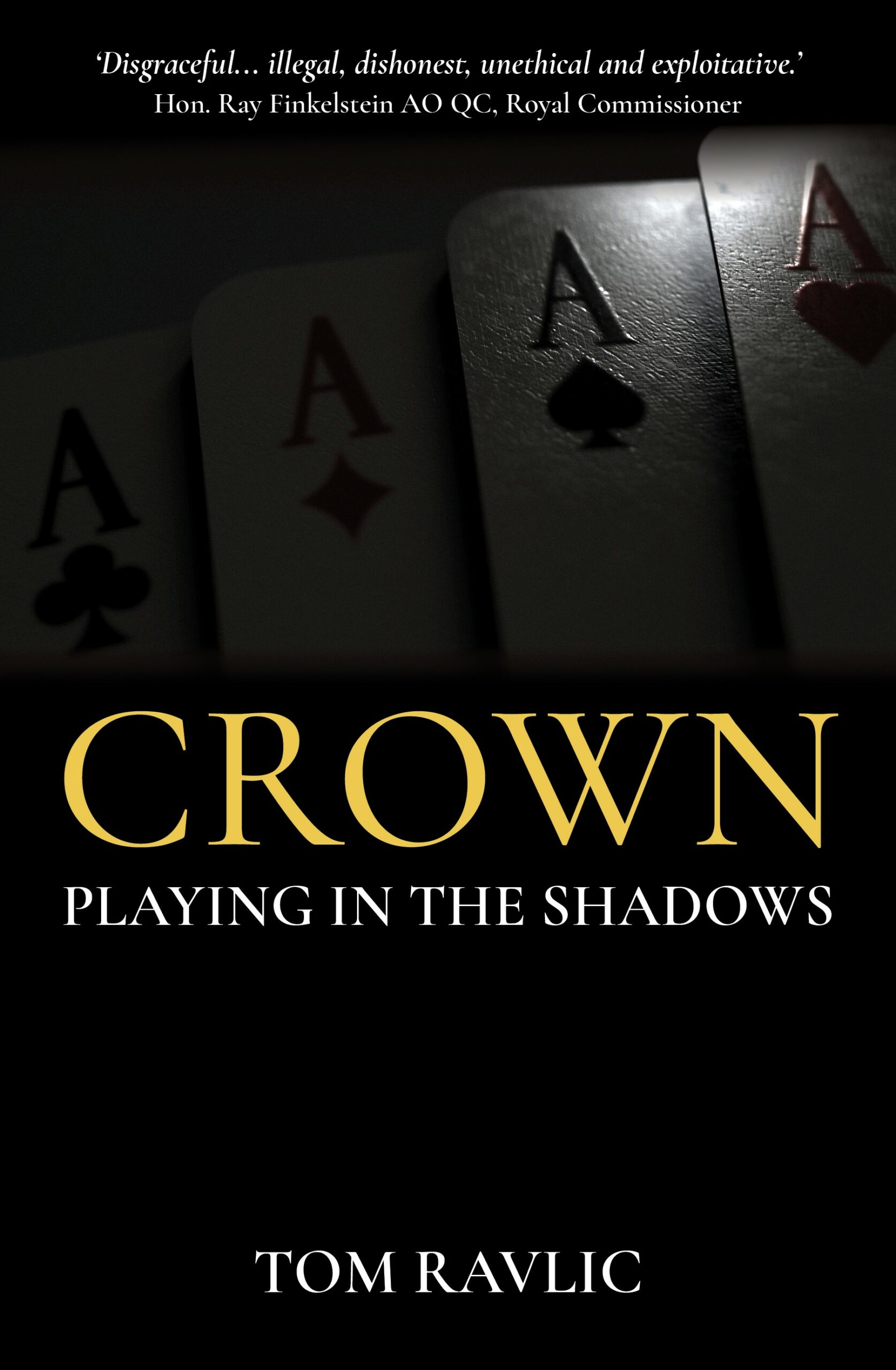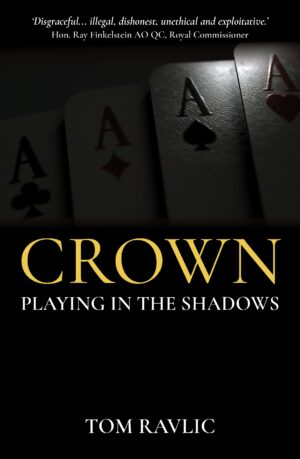EXTRACT: Crown
THE GAMBLING SECTOR: A THUMBNAIL SKETCH
Gambling has been a feature of Australian society and its economy since the arrival of the First Fleet. But even by Australian standards, the recent proliferation of gambling opportunities and the growth in the gambling industries have been remarkable.
Productivity Commission report into Australia’s Gambling Industries, 1999
They say one of the common features is that people are chasing losses because they think that there’s a win around the corner, but of course the way the machines operate, it just isn’t like that.
Nick Xenofon, lawyer and former Senator of the Australian Parliament, 2010
It took until 1999 for Australians to get what was touted by then prime minister John Howard as the first comprehensive overview of the gambling sector in Australia. Howard’s media release launching the two-volume report by the Productivity Commission noted the eternal conundrum faced by government when dealing with problem gambling and allowing Australians to enjoy fun playing games of chance. ‘The challenge for all governments in Australia is to find a response which balances the undoubted right of individual Australians to gamble if they wish with the ongoing responsibility of governments for overall community welfare,’ Howard said.
He noted that he was concerned about the increase in problem gambling reflected by the report with his 16 December 1999 media release stating that the report found that at that time 290,000 were problem gamblers and that problem gamblers accounted for $3 billion in annual losses. ‘This is disastrous not only for these problem gamblers, but also for the estimate 1.5 million people they directly affect as a result of bankruptcy, divorce, suicide, and lost time at work.’ Howard used the launch to tell Australians that the government would be adopting the recommendation to set up a ministerial council on gambling that would aim to deal with issues of problem gambling as well as the establishment of an advisory body to assist with advice to ministers regarding emerging trends in problem gambling.
The comprehensive review came at a time when Australia had seen a growth in casinos that first began with the Wrest Point Casino in Tasmania in 1973. Wrest Point was followed by SkyCity Darwin in 1979. SkyCity Darwin would later become known as Mindil Beach Casino Resort. The time between the establishment of new casinos began to get shorter during the 1980s with six casinos getting approval. Lasseters opened up in Alice Springs in 1981; Country Club Tasmania opened in Launceston in 1982; Adelaide’s SkyCity flung its doors open in 1985 as did Burswood Entertainment Complex in Perth and Conrad Jupiters on the Gold Coast; Townsville’s Jupiters hotel and casino opened in 1986.
It was not until the next decade that two of Australia’s most populated states got casinos with Crown Melbourne opening its doors in 1994 and Star City Sydney kicked off its operations in 1995.
Other casinos established during the 1990s included Casino Canberra (1992), Conrad Treasury Casino (1995), and the Reef Hotel Casino (1996). Each of these establishments came with the novelty of a new place for entertainment but also ushered in a period where electronic gaming machines—or as they are colloquially known, the pokies— started to get attention as being the antichrist when it came to the problem gambling.
Casinos over time attracted people that were prepared to throw a bit more money around than the average person on the street and the VIP segment of the market, the high roller and high-profile gamblers, became more significant over the years. The key casinos for which the VIP market was critical were Crown Melbourne, Crown Perth, The Star Sydney, The Star Gold Coast. The special gambler market was also focused on by Darwin’s Mindil Beach Casino Resort and also The Treasury in Brisbane. This VIP market would bring an intense focus on the gambling marketplace because it would later be synonymous with the bringing in people keen to launder funds irrespective of whether they were organised crime figures or just rich people wanting their money out of their home country to play games at an overseas venue.


